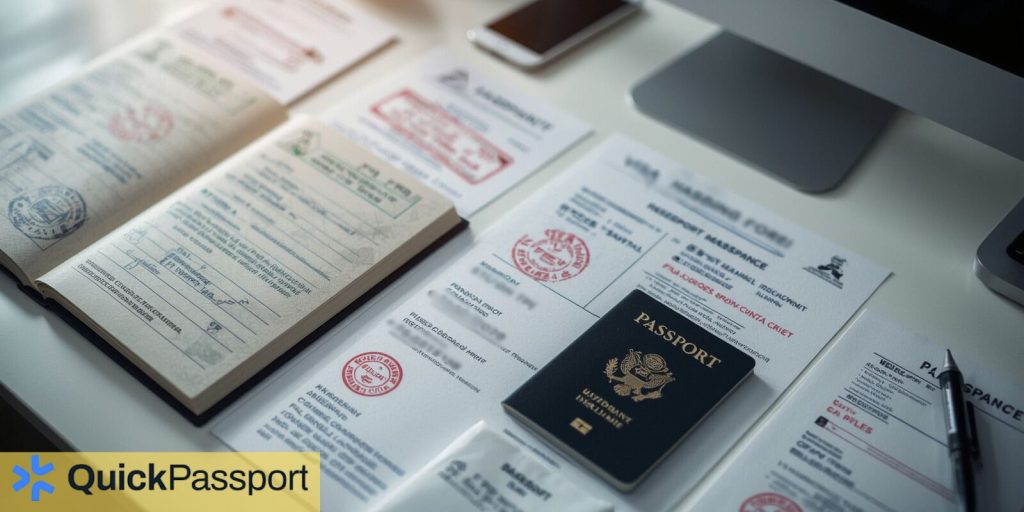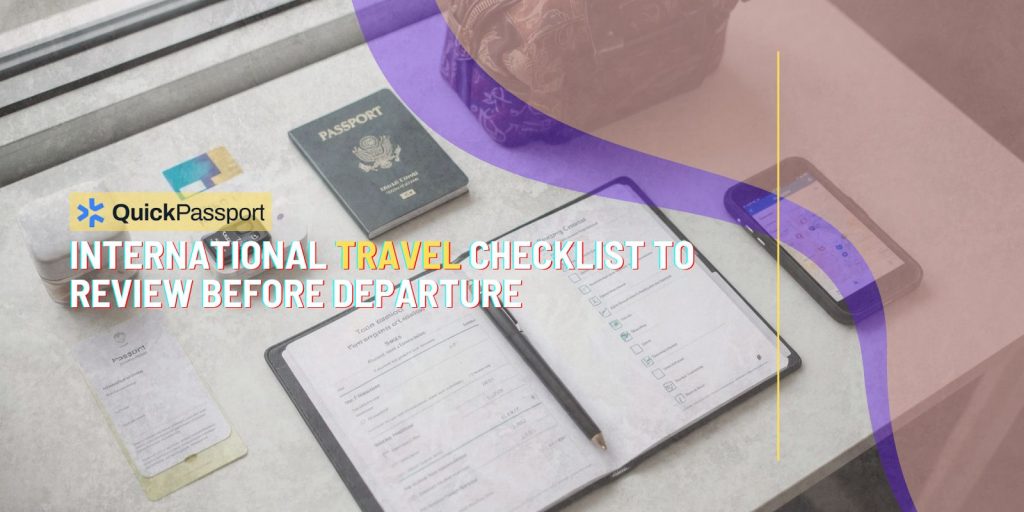Embarking on international travel requires meticulous planning and preparation to ensure a smooth, enjoyable journey. Whether you’re traveling for business, leisure, or family visits, having a comprehensive international travel checklist before departure can make the difference between a stress-free adventure and a chaotic experience filled with unexpected complications. The excitement of exploring new destinations often overshadows the critical preparation phase, yet this foundational step determines the success of your entire trip.
International travel preparation involves far more than simply booking flights and accommodations. Modern travelers must navigate complex visa requirements, health documentation, financial preparations, and security considerations that vary significantly between countries and regions. The landscape of international travel has evolved considerably, with new regulations, digital requirements, and health protocols becoming standard practice across the globe.
Creating and following a detailed checklist ensures you don’t overlook essential documents, vaccinations, or preparations that could result in denied boarding, entry refusal, or significant delays. Professional travelers and seasoned adventurers understand that thorough preparation not only prevents problems but also enhances the overall travel experience by reducing anxiety and uncertainty.
The consequences of inadequate preparation can be severe, ranging from missed flights and additional expenses to serious legal complications in foreign countries. Immigration officials, airline staff, and border security personnel expect travelers to arrive fully prepared with all required documentation and compliance measures completed. Understanding these expectations and preparing accordingly demonstrates respect for destination countries while protecting your investment in travel plans.
This comprehensive guide provides a systematic approach to international travel preparation, covering every aspect from essential documentation to last-minute considerations. By following this structured checklist, you’ll develop confidence in your preparation process and establish habits that will serve you well throughout your international travel experiences.
Key Takeaways
- Document Verification: Ensure your passport has at least six months validity remaining and obtain necessary visas well in advance of your departure date
- Health Preparations: Research vaccination requirements, obtain necessary immunizations, and prepare a comprehensive medical kit for your destination
- Financial Planning: Notify banks of travel plans, understand currency exchange rates, and establish multiple payment methods for international use
- Communication Setup: Arrange international phone plans, download offline maps, and establish emergency communication protocols
- Insurance Coverage: Secure comprehensive travel insurance that covers medical emergencies, trip cancellations, and lost luggage
- Accommodation Confirmation: Verify hotel reservations, understand check-in procedures, and have backup accommodation options available
- Transportation Planning: Confirm flight details, understand airport procedures, and arrange ground transportation at your destination
- Emergency Preparedness: Create copies of important documents, establish emergency contacts, and understand embassy locations and services
- Cultural Research: Learn about local customs, laws, and etiquette to ensure respectful and safe travel experiences
- Technology Preparation: Ensure devices are compatible with destination power systems and download essential travel applications
Essential Documentation and Legal Requirements
The foundation of successful international travel lies in proper documentation and compliance with legal requirements. Your passport serves as your primary identification and must meet specific criteria for international travel. Most countries require passports to have at least six months of validity remaining beyond your planned departure date, though some destinations accept three months. Checking these requirements early prevents last-minute complications that could derail your travel plans.

Visa requirements vary dramatically between countries and depend on your nationality, destination, purpose of travel, and length of stay. Some countries offer visa-free entry for short tourist visits, while others require extensive documentation and processing time. Business travelers often need different visa types than tourists, and some destinations require invitation letters or proof of financial resources. Researching these requirements months in advance ensures adequate processing time and prevents rushed applications that may contain errors.
QuickPassport – Phoenix specializes in expediting passport and visa services, helping travelers navigate complex documentation requirements efficiently. Their expertise proves invaluable when dealing with tight timelines or complicated visa applications that require specific documentation or formatting.
Additional documentation may include international driving permits for car rentals, professional licenses for business activities, or educational credentials for academic travel. Some countries require proof of onward travel, demonstrating you plan to leave before your authorized stay expires. Travel insurance documentation may be mandatory for entry to certain destinations, particularly in Europe where Schengen visa requirements include specific coverage amounts.
Digital copies of all important documents should be stored securely in cloud services and shared with trusted contacts at home. Physical copies should be kept separate from originals during travel, providing backup options if documents are lost or stolen. Consider carrying passport-style photos for emergency document replacement or unexpected visa applications during your journey.
Health and Medical Preparations
International travel often exposes you to different health risks, requiring specific medical preparations and preventive measures. Vaccination requirements vary by destination, with some countries mandating specific immunizations for entry while others simply recommend them for traveler safety. Yellow fever vaccination certificates are required for entry to many African and South American countries, while Japanese encephalitis, typhoid, and hepatitis vaccines may be recommended based on your itinerary and activities.
Consulting with travel medicine specialists or your healthcare provider at least 4-6 weeks before departure ensures adequate time for vaccination series completion and allows your immune system to develop full protection. Some vaccines require multiple doses over several weeks, making early planning essential. Additionally, certain medications like malaria prophylaxis must be started before travel and continued after return.
Prescription medications require special attention for international travel. Carry medications in original containers with pharmacy labels clearly showing your name and prescribing physician. Research whether your medications are legal in destination countries, as some common prescriptions may be controlled substances elsewhere. Obtain letters from your physician explaining medical necessity for controlled medications, and carry extra supplies in case of travel delays.
Creating a comprehensive medical kit tailored to your destination and planned activities ensures you’re prepared for common health issues. Include basic first aid supplies, pain relievers, anti-diarrheal medication, antihistamines, and any specific items recommended for your destination. Consider altitude sickness medication for high-elevation destinations or motion sickness remedies for boat or bus travel.
Health insurance coverage for international travel requires careful review, as many domestic policies provide limited or no coverage abroad. Travel health insurance should cover emergency medical treatment, medical evacuation, and repatriation costs. Some policies include coverage for pre-existing conditions, while others exclude them entirely. Understanding your coverage limitations helps you make informed decisions about additional insurance needs.
Financial Planning and Banking Considerations
Financial preparation for international travel involves more than simply having enough money for your trip. Banking institutions implement fraud protection measures that can freeze your accounts if they detect unusual international activity without prior notification. Contacting your bank and credit card companies before departure prevents these protective measures from leaving you without access to funds while abroad.
Understanding currency exchange rates and fees helps you make cost-effective financial decisions throughout your journey. Banks and credit unions often offer better exchange rates than airport kiosks or tourist-focused exchange services. However, using ATMs abroad frequently provides the most favorable rates, though international transaction fees may apply. Research your bank’s international ATM partnerships to minimize withdrawal fees.
Diversifying your payment methods provides security and flexibility during international travel. Carry a mix of cash, credit cards, and debit cards from different financial institutions. Notify each institution of your travel dates and destinations to prevent security holds. Some credit cards offer excellent international benefits including no foreign transaction fees, travel insurance, and emergency assistance services.
Budgeting for international travel requires research into local costs and spending patterns. Accommodation, food, transportation, and activity costs vary dramatically between destinations. Factor in tipping customs, tourist taxes, and visa fees that may not be included in initial travel cost estimates. Consider creating separate budgets for necessities and discretionary spending to maintain financial control throughout your trip.
Emergency financial planning ensures you can handle unexpected expenses or situations abroad. Maintain access to emergency funds through multiple channels, and understand how to receive emergency money transfers if needed. Some credit cards offer cash advance options, though interest rates and fees make this expensive. Travel insurance may cover certain emergency expenses, reducing your out-of-pocket costs for covered incidents.
Technology and Communication Setup
Modern international travel relies heavily on technology for navigation, communication, translation, and information access. Ensuring your devices work properly abroad requires understanding international compatibility, power requirements, and connectivity options. Smartphones, tablets, and laptops may need specific settings adjustments or additional accessories to function optimally in different countries.

International phone plans vary significantly in cost and coverage, making research essential for budget-conscious travelers. Major carriers offer international roaming packages, but costs can be substantial for extended travel. Alternative options include purchasing local SIM cards upon arrival, using international SIM cards, or relying primarily on Wi-Fi connectivity with messaging apps like WhatsApp or Telegram.
Power adapter requirements depend on your destination’s electrical standards. Different countries use various plug types and voltage levels, requiring specific adapters or converters. Universal adapters work in multiple countries but may not provide optimal charging speeds for all devices. Research specific requirements for each destination on multi-country trips to ensure compatibility.
Downloading essential applications before departure ensures functionality even without internet connectivity. Offline maps, translation apps, currency converters, and travel guides provide valuable assistance when cellular or Wi-Fi connections are unavailable. Many airlines offer mobile check-in and boarding pass services, reducing paper documentation needs.
Data backup and security become critical when traveling with valuable information on electronic devices. Use cloud storage services to backup important photos, documents, and files regularly. Enable device tracking and remote wipe capabilities in case of theft or loss. Consider using VPN services when connecting to public Wi-Fi networks to protect sensitive information from potential security threats.
Accommodation and Transportation Arrangements
Confirming accommodation reservations and understanding check-in procedures prevents arrival complications and ensures smooth transitions to your destination. Print or save digital copies of hotel confirmations, including contact information, addresses, and special instructions. Research hotel locations relative to airports, city centers, and planned activities to understand transportation needs and costs.
Transportation planning extends beyond booking flights to include ground transportation, local transit options, and intercity travel arrangements. Research airport transfer options including taxis, ride-sharing services, public transportation, and hotel shuttles. Understanding these options in advance helps you make informed decisions upon arrival and avoid expensive last-minute transportation choices.
Flight confirmation and check-in procedures have evolved significantly with mobile technology and security requirements. Most airlines allow online check-in 24 hours before departure, enabling seat selection and boarding pass downloads. Understanding baggage restrictions, security procedures, and airport layouts for both departure and arrival airports reduces travel stress and prevents delays.
Rental car arrangements require international driving permits in many countries, along with understanding local traffic laws and driving customs. Insurance coverage for rental vehicles may differ significantly from domestic policies, requiring additional coverage purchases. Research parking availability and costs at your destinations, as many international cities have limited parking and expensive fees.
Public transportation systems offer cost-effective and authentic travel experiences in many international destinations. Research transit passes, route maps, and payment methods before arrival to navigate efficiently. Many cities offer tourist transportation passes that include multiple transit modes and attraction discounts, providing excellent value for visitors.
Frequently Asked Questions
How far in advance should I start my international travel preparations?
Begin preparations at least 2-3 months before departure, with passport and visa applications started even earlier if needed. This timeline allows for document processing, vaccination schedules, and resolving any unexpected complications.
What documents should I carry copies of during international travel?
Create copies of your passport, visas, travel insurance, flight confirmations, hotel reservations, emergency contacts, and medical prescriptions. Store digital copies separately from physical documents.
Do I need travel insurance for international trips?
Travel insurance is highly recommended and required by some countries. It should cover medical emergencies, evacuation, trip cancellation, and lost luggage. Review coverage details carefully to understand limitations and exclusions.
How much cash should I carry for international travel?
Carry enough local currency for immediate needs upon arrival, typically $100-200 equivalent. Rely primarily on ATM withdrawals and credit cards for larger expenses, but always have backup payment methods available.
What vaccinations do I need for international travel?
Vaccination requirements vary by destination and your medical history. Consult with travel medicine specialists or check CDC recommendations for specific countries. Some vaccines require multiple doses over several weeks.
Can I use my cell phone internationally?
Most modern smartphones work internationally, but roaming charges can be expensive. Contact your carrier about international plans, or consider local SIM cards and Wi-Fi-based communication apps.
What should I do if I lose my passport while traveling abroad?
Contact the nearest U.S. embassy or consulate immediately. They can issue emergency passports for return travel. Having passport copies and backup identification expedites this process significantly.
How do I notify my bank about international travel?
Contact your bank and credit card companies before departure to inform them of travel dates and destinations. This prevents fraud protection systems from freezing your accounts due to unusual international activity.
Conclusion
Successful international travel begins long before you reach the airport, requiring systematic preparation and attention to numerous details that can significantly impact your journey. This comprehensive international travel checklist before departure provides the framework for thorough preparation, ensuring you address essential requirements while avoiding common pitfalls that plague unprepared travelers.
The investment in proper international travel preparation pays dividends throughout your journey, from smooth airport processing to confident navigation of foreign destinations. Each element of preparation builds upon others, creating a foundation of security and confidence that enhances your overall travel experience. Professional services like QuickPassport – Phoenix can streamline complex documentation processes, providing expertise and efficiency when time constraints or complicated requirements challenge individual travelers.
Remember that international travel preparation is an ongoing process that improves with experience. Each journey provides opportunities to refine your preparation methods and discover new strategies for efficient travel planning. Maintaining organized records of successful preparation steps creates templates for future trips, reducing preparation time while maintaining thoroughness.
The world offers incredible opportunities for exploration, cultural exchange, and personal growth through international travel. Proper preparation ensures these opportunities remain accessible and enjoyable, transforming potentially stressful experiences into confident adventures that create lasting memories and meaningful connections across cultures and continents.






